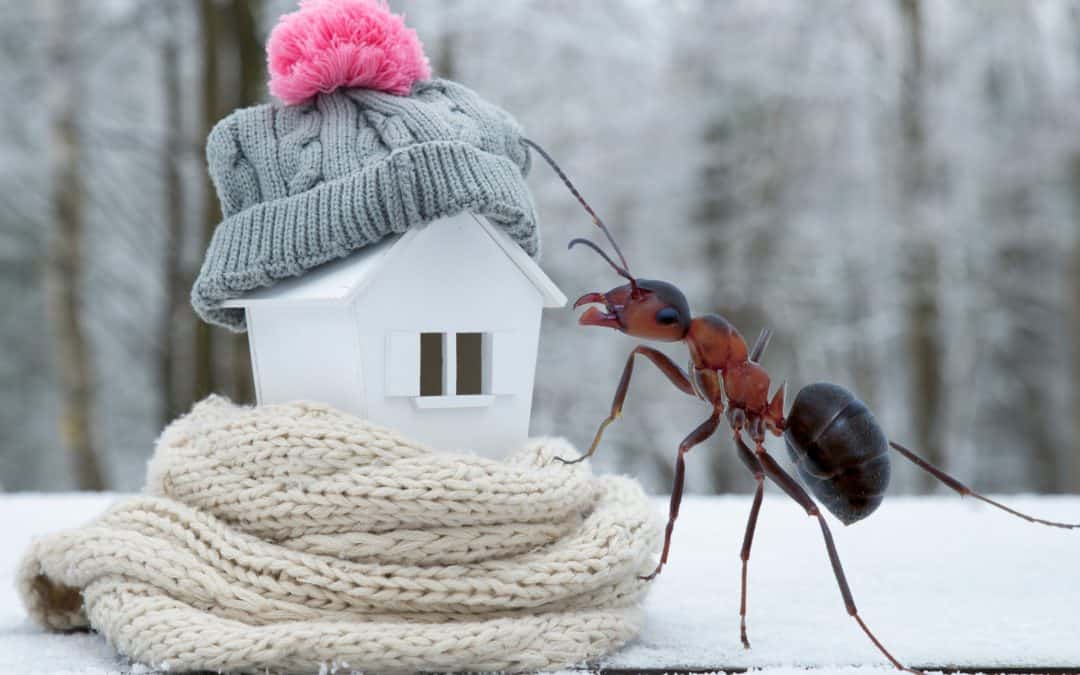When the temperatures drop, pests like mice, spiders, and insects start seeking warmth and shelter—and your cozy home might be their perfect winter retreat. Don’t let unwanted guests settle in! Learning how to protect your home from pests this winter will keep these critters outside where they belong. From sealing up entry points to maintaining a clean home, a few proactive steps can make a big difference.
Why Pests Love Winter Indoors
Winter sends many animals, insects, and rodents in search of food, water, and shelter. Homes offer all three in abundance, making them the ideal winter hideout for pests like mice, rats, spiders, and even cockroaches. These pests can carry bacteria, contaminate food, and in some cases, damage your property. By understanding why they’re drawn to your space, you’ll know exactly where to focus your pest-proofing efforts.
Inspect and Seal Entry Points
One of the best ways to protect your home from pests is by identifying and sealing all possible entry points. Even small gaps around windows, doors, and utility pipes provide easy access for pests, particularly mice and insects.
- Check for Cracks and Holes: Inspect the exterior of your home for cracks, crevices, and holes. Use caulk or foam sealant to close small gaps. Larger openings may require a more permanent repair, such as metal flashing or concrete patching.
- Door and Window Seals: Make sure all doors and windows have weather-stripping that fits snugly. Door sweeps can prevent insects and rodents from crawling in underneath doors. Sealing these areas effectively will help retain warmth and keep pests outside.
- Screen Repairs: Damaged window screens are easy access points for pests. Repair or replace torn screens and use fine mesh screens to keep even the tiniest insects out.
Keep Your Home Clean and Clutter-Free
A clean home is less attractive to pests. Food crumbs, trash, and clutter invite them in, giving them food and places to hide.
- Food Storage: Store food in airtight containers and clean up spills and crumbs promptly. This includes pet food, which can be just as tempting to pests.
- Garbage Management: Take out the trash regularly and keep it covered. Pests like rats and roaches often raid garbage bins for easy food sources.
- Declutter: Winter clutter provides hiding spots for rodents and insects. Decluttering areas like basements, attics, and storage closets makes it harder for pests to settle in unnoticed.
Check for Moisture Problems
Pests often enter homes looking for moisture as well as warmth. Leaks or areas with excess moisture can create an attractive environment for them.
- Fix Leaks: Regularly check for leaks under sinks, around pipes, and in basements. Fix any issues immediately to reduce dampness.
- Ventilate Moist Areas: Bathrooms, kitchens, and laundry rooms can retain humidity, which attracts pests like silverfish and cockroaches. Ventilate these spaces with exhaust fans to reduce moisture.
- Monitor Basements and Attics: These areas can accumulate condensation and leaks. Regularly inspect them for dampness and consider using a dehumidifier if needed.
Preventive Maintenance Around Your Home’s Exterior
Your yard can also contribute to pest problems, especially in winter when pests are seeking shelter. Simple outdoor maintenance will discourage pests from approaching your home.
- Trim Vegetation: Trees and bushes that touch your home create bridges for pests to enter. Trim back branches, shrubs, and any vegetation within a few feet of your home.
- Clear Debris: Piles of leaves, wood, and other yard debris provide hiding places for pests. Clear these regularly to reduce their appeal.
- Firewood Storage: If you keep firewood, store it at least 20 feet away from the house and a few inches off the ground to prevent rodents and insects from nesting in it.
Set Up Preventive Barriers
Using certain repellents and traps can be an extra layer of protection. There are many eco-friendly and humane options that are safe for both people and pets.
- Rodent Traps: Set traps in garages, basements, and other areas where mice and rats might try to enter. Check and empty them regularly to maintain effectiveness.
- Natural Repellents: Many pests dislike scents such as peppermint, eucalyptus, and citrus. Use essential oils diluted with water to spray in potential entry areas, or place cotton balls soaked with these oils around entry points.
- Insect Control Sprays: For a more long-lasting approach, use an insect barrier spray around the outside of your home. Many insect sprays use ingredients derived from plants, which are safe for children and pets.
Know When to Call a Professional
Sometimes, despite all efforts, pests still find a way in. If you notice signs of an infestation, such as droppings, chewed wires, or an unusual number of insects, it may be time to call in a professional.
- Identify Pest Types: Different pests require different approaches. Professionals can help identify what’s entering your home and the most effective treatment.
- Long-Term Solutions: Pest control services can provide treatments that last for several months, giving you peace of mind through the winter season.
- Prevention Plans: Many pest control companies offer preventative plans, treating your home at key times during the year to keep pests at bay.
Winter Pest Prevention Checklist
Here’s a quick checklist to help you remember the basics as you protect your home from pests this winter:
- Seal Entry Points: Doors, windows, pipes, and cracks.
- Manage Food and Trash: Store food properly and take out trash often.
- Eliminate Moisture: Fix leaks and ventilate damp areas.
- Outdoor Maintenance: Trim vegetation and clear yard debris.
- Preventive Barriers: Use natural repellents, traps, and sprays.
- Professional Help: Know when it’s time to call in experts.
With a few preventive measures, you can enjoy a pest-free winter season. Keeping pests out requires a bit of effort, but the result is a safe and comfortable home all winter long.
